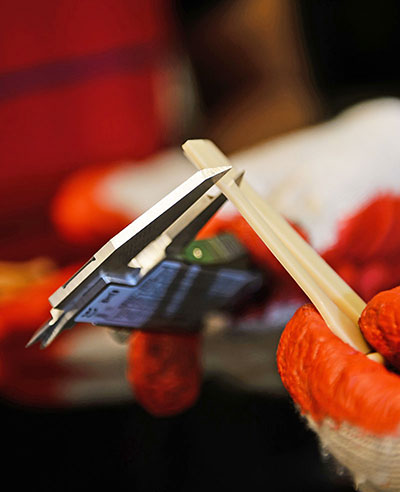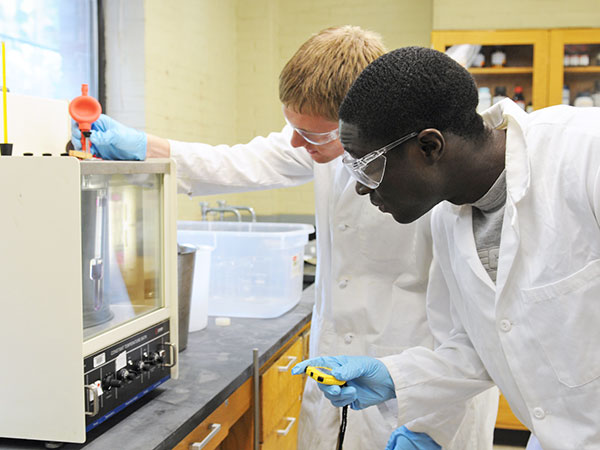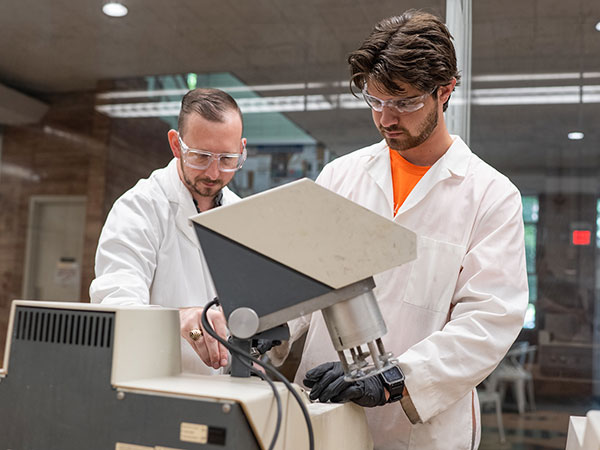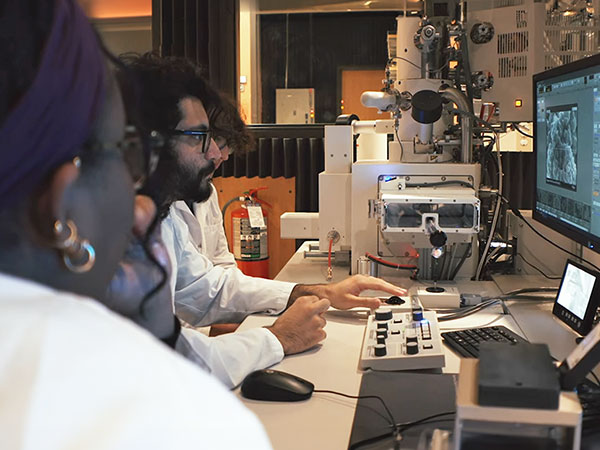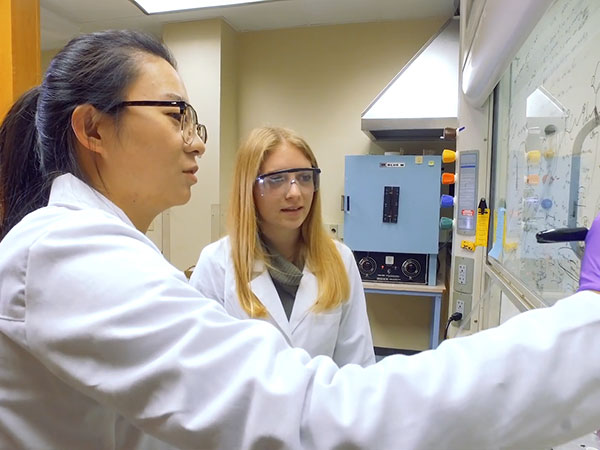Shaping Innovations
Unlock a lifetime of discovery and the chance to be part of the next generation of industry-shaping innovations with a degree in materials science and engineering from Clemson University. From the intricate components of cutting-edge electronics to groundbreaking clean energy solutions, your work will have a profound impact.
Material Breakthroughs
What textiles were to the 20th century in relation to material and manufacturing breakthroughs, advanced materials are to this century. Specifically designed for high-performance applications, the enhanced properties of advanced materials are superior to more conventional materials due to their usability for multiple applications, including several crucial to South Carolina's economy, such as automobiles and airplanes.
Like textiles, advanced materials are hard at work around us, from hospitals and homes to workplaces, making medicine more effective, machines more efficient, and our world more sustainable. With a degree in materials science and engineering, you will be making contributions fundamental to the changing economy.
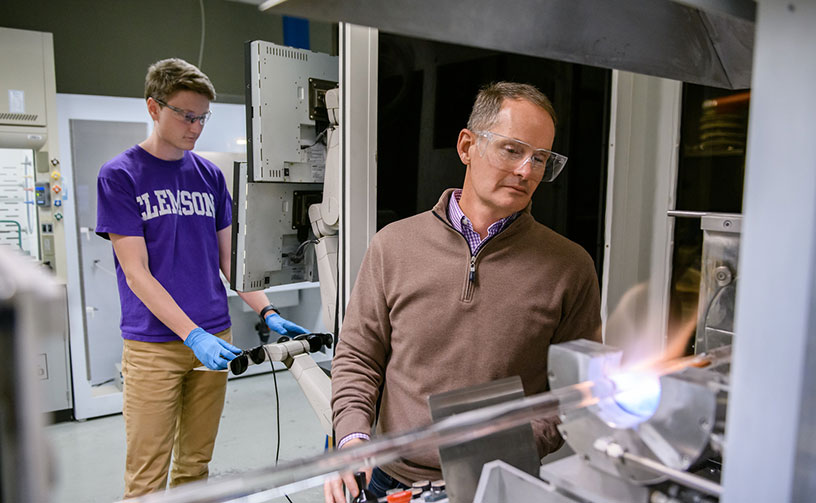

Career Paths
Material scientists and engineers require fundamental knowledge in mathematics and engineering, as well as skills like problem-solving, design, and good communication. For both the undergraduate and graduate programs, unique research opportunities provide hands-on experience for career growth. Students in materials science and engineering are sought by employers from many industry sectors with a present starting annual salary average of $75,000 with a range of $60,000–$100,000.
- Aerospace
- Automotive
- Communications
- Consumer Goods
- Biomedical
- Analysis and Testing
- Research and Development
- Management
- Safety
- Sales and Marketing
- Manufacturing and Production
Schedule a Tour
The College of Engineering, Computing and Applied Sciences invites prospective undergraduate students to visit campus to learn about the programs and facilities. The tours are led by students currently enrolled in the College of Engineering, Computing and Applied Sciences. To register or learn more about our tours, visit the College's Tour Page. The Materials Science and Engineering option is under the Academic Information on the tour request form.
For graduate program tours, please email the program contact. Allow 1-2 weeks' notice before visiting so that you may be able to meet faculty and current students and attend some classes.
Undergrad Tour Graduate TourMaking an Impact
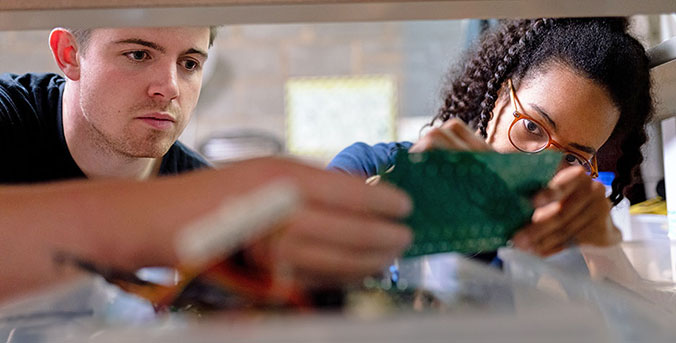
Research in the Netherlands
The International Research Experiences for Students (IRES) site in Self-Healing Materials Development aims to educate undergraduate and graduate students in the expanding field of self-healing materials, with an overall goal of providing a global awareness of how new generations of materials may impact the environment and societal needs while conducting research. Six students spend 10 weeks at the Delft University of Technology in the Netherlands performing collaborative experimental and computational research on self-healing metallic, ceramic, polymeric and composite materials.
Researchers have been making self-healing polymers for two decades, but producing them on a commercial scale has been cost-prohibitive. Urban and his team took advantage of interactions between co-polymers that he likened to spaghetti strands. The longer the strands get, the more they become interlocked, making it harder to pull them apart.
“As simple as this may sound, these studies also revealed that ubiquitous and typically weak van der Waals interactions in plastics, when oriented, will result in self-healing. This discovery will impact the development of sustainable materials using weak bonding which becomes collectively very strong when oriented.”
Marek W. UrbanIRES ProgramProject Director
Collaborative Research
A significant advantage of attending a major research university as an undergraduate is the opportunity to collaborate with faculty and graduate students on exciting research projects and industry partnerships. The college regularly partners with businesses, government agencies and industries to discover practical solutions to real-world problems. Students become valuable team members in research groups that are tackling economic, ethical and environmental issues.
Our Faculty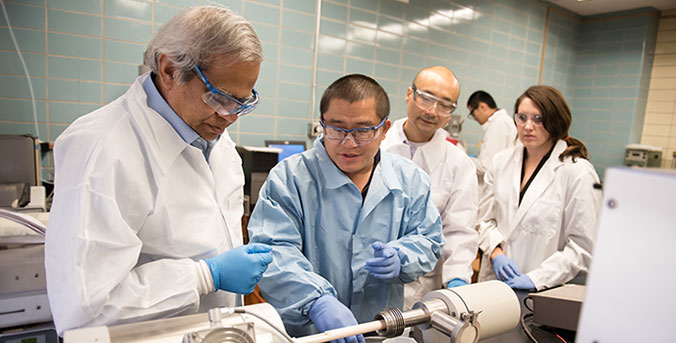
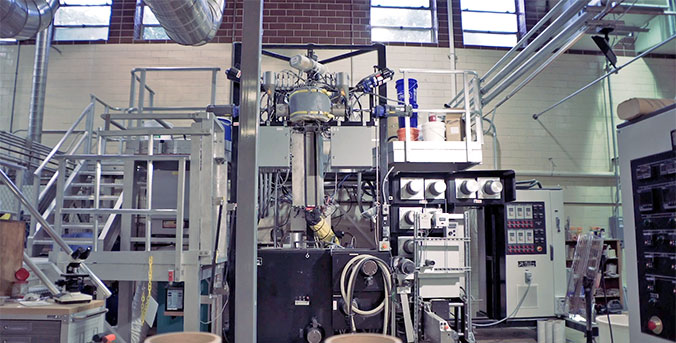
Sophisticated Research Centers
With more than $100 million in sponsored research support annually, Clemson is one of the National Science Foundation’s top 100 research universities. Research in the College of Engineering, Computing and Applied Sciences alone attracts more than $50 million annually in competitively sponsored grants. As a result, Clemson houses some of the most sophisticated research centers, laboratory facilities and testing instrumentation in the Southeast.
Our Centers
